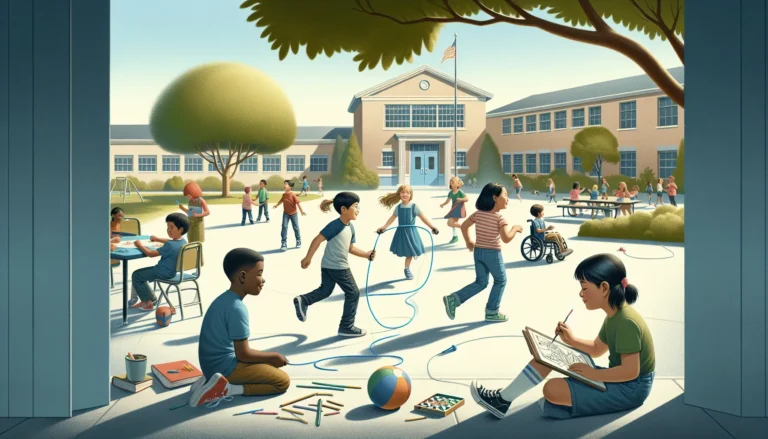In a world where traditional classrooms sometimes feel like a scene from a sitcom gone wrong, alternative education jobs are emerging as the unsung heroes of learning. Imagine a career where creativity reigns, and the only thing standing between you and a successful lesson is your imagination (and maybe a few snacks). From outdoor educators to online tutors, these roles break the mold of conventional teaching, offering fresh approaches to inspire and engage students.
Alternative education jobs aren’t just about teaching; they’re about transforming lives, one quirky lesson at a time. Whether it’s guiding kids through nature’s wonders or using technology to connect with learners across the globe, these positions promise excitement and fulfillment. So, if you’re tired of the same old chalkboard routine, it might be time to explore the vibrant world of alternative education and find a job that makes you jump out of bed in the morning (and possibly even dance).
Table of Contents
ToggleOverview Of Alternative Education Jobs
Alternative education jobs have emerged as engaging options beyond traditional teaching roles. Educators in these positions emphasize creativity and unique learning methods to transform students’ lives.
Definition And Importance
Alternative education jobs encompass various roles that focus on non-conventional teaching methods. These positions prioritize holistic development through experiential and personalized learning. Importance lies in their ability to cater to diverse learning styles, fostering student engagement and motivation. They serve students needing tailored approaches that traditional education often overlooks. Such jobs contribute to enriching the educational landscape while creating inspiring and fulfilling career paths for educators.
Types Of Alternative Education Jobs
Several types of alternative education jobs exist, each offering unique opportunities for educators. Outdoor educators engage students in nature-based learning experiences, emphasizing environmental awareness. Online tutors provide flexible, personalized instruction that can adapt to individual learning needs. Montessori educators facilitate self-directed learning in child-centered environments. Additionally, art therapists use creative expression to support emotional and cognitive development. These roles exemplify the dynamic nature of alternative education, appealing to various interests and skills while promoting innovative teaching practices.
Skills Required For Alternative Education Jobs
Alternative education jobs demand a unique set of skills and qualifications that align with their innovative teaching methods. These roles benefit from a diverse range of educational backgrounds and personal attributes.
Educational Qualifications
Many positions in alternative education require foundational degrees in education or related fields. Specialized training in techniques such as Montessori or Waldorf methods enhances a candidate’s profile. Certifications in outdoor education or therapeutic practices can also increase employability in specific roles. Professional development courses show commitment to alternative methods and latest trends.
Key Skills And Attributes
Effective communication promotes engagement and fosters relationships with students. Creativity plays a vital role in developing unique learning experiences. Adaptability allows educators to adjust teaching methods based on individual student needs. Empathy enhances understanding of diverse backgrounds and learning styles. Problem-solving skills enable educators to tackle challenges with innovative solutions.
Benefits Of Working In Alternative Education
Working in alternative education offers unique opportunities for personal and professional growth, creating an environment where educators thrive.
Personal Fulfillment
Personal fulfillment stands out as a significant benefit. Educators find joy in nurturing individual learning styles. They often see students engage in ways that traditional settings may overlook. Witnessing transformation in students can be incredibly rewarding. Building relationships with students contributes to a supportive and vibrant community. The ability to inspire creativity and facilitate exploration brings meaning to each day. Focusing on holistic development enriches both student lives and educator experiences.
Career Growth Opportunities
Career growth opportunities in alternative education are abundant. Many roles encourage professional development through innovative training and workshops. They offer avenues to gain specialized certifications, enhancing employability. Additionally, educators often transition into leadership or curriculum development positions. Alternative education fosters a collaborative culture, providing network connections with like-minded professionals. These roles can expand career horizons, leading to roles in administration or advocacy for progressive educational methods. The evolving landscape presents continual opportunities for advancement, ensuring a dynamic career path.
Challenges Faced In Alternative Education Jobs
Alternative education jobs come with unique challenges that professionals navigate while fostering innovative learning experiences. Addressing these obstacles enhances understanding and informs career choices.
Job Stability And Funding
Job stability often presents a significant concern in alternative education. Many organizations rely on inconsistent funding sources like grants or donations, leading to fluctuating job security. Educators may find themselves in temporary positions with limited long-term prospects. Competition for grants can also intensify, affecting resource availability for programs. Schools or organizations with unique curricula may struggle to secure governmental support, further impacting their financial stability. Inadequate funding can hinder the development of essential learning resources or facilities. Professions within this sector often demand creative solutions to budget limitations, emphasizing the need for resourcefulness.
Navigating Regulations And Standards
Navigating regulations in alternative education jobs poses additional challenges. Each state establishes its own set of guidelines and accreditation requirements, complicating compliance. Educators must remain updated on changing legislation that governs educational practices. Meeting state standards while promoting a non-traditional approach can create tension. Diverse curricula may frequently face scrutiny, requiring educators to balance innovation with regulatory expectations. Organizations may encounter difficulties securing licensure if they diverge from traditional educational models. Moreover, conflicting interpretations of educational standards can complicate program assessments, necessitating ongoing discussions among stakeholders.
Conclusion
Alternative education jobs offer a refreshing shift from traditional teaching roles. They provide unique opportunities for educators to engage with students in innovative ways that cater to diverse learning styles. The personal fulfillment derived from these positions is invaluable as educators witness transformative growth in their students.
While challenges like job stability and regulatory compliance exist, the rewards often outweigh the risks. The dynamic nature of this field encourages continuous professional development and networking among passionate individuals. For those seeking a more inspiring and impactful career path, alternative education stands out as an exciting and fulfilling option.





